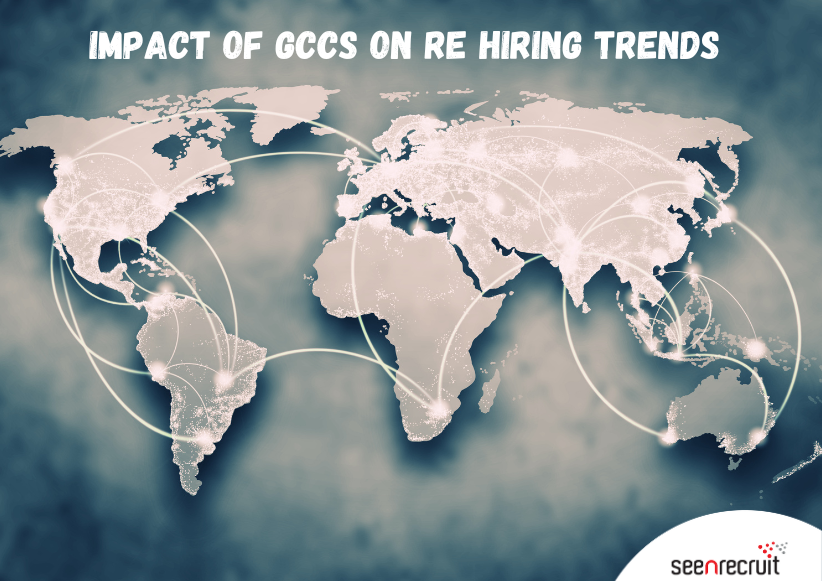The Impact of Global Capability Centers on Real Estate Hiring Trends

Explore how Global Capability Centers (GCCs) are reshaping real estate hiring trends. As GCCs expand, the demand for talent in facility management, corporate leasing, and commercial real estate is rising. This blog highlights key hiring shifts, emerging job roles, and the skills professionals need to stay competitive in a changing market. Stay ahead with insights into how GCC growth influences recruitment in the real estate sector.
The rise of Global Capability Centers (GCCs) is a result of restructuring industries worldwide, and the real estate sector is no exception. As multinational corporations set up these hubs to centralize operations, innovation, and expertise, the demand for specialized real estate professionals is transforming. This blog explores how GCC’s expansion influences real estate hiring trends and what it means for recruiters, job seekers, and industry stakeholders.
GCCs, also known as Global In-House Centers (GICs), do large enterprises establish offshore units to support business functions such as IT, finance, HR, analytics, and R&D. Countries like India, the Philippines, Poland, and Mexico have become key destinations for these centers due to their cost efficiency, talent availability, and business-friendly policies.
With the rise of GCCs, the commercial real estate sector is experiencing an increased demand for office spaces, co-working hubs, and technology parks. This shift has led to notable changes in hiring patterns across the real estate industry, influencing roles such as property management, real estate consulting, and workplace strategy specialists.
GCCs require large-scale office spaces equipped with modern infrastructure, leading to an increase in demand for leasing specialists, real estate brokers, and property acquisition experts. Recruiters seek professionals skilled in negotiating corporate leases, managing flexible workspaces, and optimizing office utilization.
With ESG (Environmental, Social, and Governance) considerations gaining prominence, GCCs emphasize green buildings, energy-efficient workspaces, and sustainable infrastructure. Consequently, there is a growing need for sustainability consultants, LEED-certified professionals, and environmental compliance specialists in real estate hiring.
As GCCs leverage advanced technologies like AI, IoT, and Smart Building Solutions, real estate firms are increasingly hiring PropTech specialists, digital facility managers, and automation experts. Managing smart workspaces and data-driven property operations has become a sought-after skill.
While Bangalore, Hyderabad, and Pune continue to dominate as GCC hubs, tier-2 and tier-3 cities are emerging as attractive alternatives due to lower costs and a growing talent pool. This expansion creates opportunities for local real estate consultants, site development managers, and infrastructure planners.
The shift toward hybrid and remote work models is changing office space requirements. Real estate companies are now hiring experts in workspace design, agile office solutions, and real estate portfolio management to help businesses navigate the evolving landscape.
The growth of Global Capability Centers is significantly impacting real estate hiring trends, driving demand for skilled professionals across leasing, sustainability, and PropTech. Real estate hiring will evolve as businesses expand to accommodate emerging market needs, technological advancements, and sustainable initiatives.
Adapting to these changing dynamics will be key to success for companies and candidates looking to stay ahead in the real estate job market.